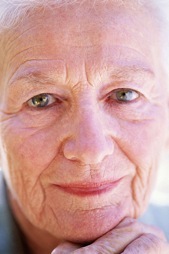-
Ear, Nose & Throat Problems





Tinnitus (Ringing in the Ears)
Tinnitus is hearing ringing or other noises in the ears when no outside source makes the sounds. Almost everyone gets “ringing in the ears” at one time or another. This may last a minute or so, but
then goes away. When hearing these sounds persists, suspect tinnitus. The noises can range in volume from a ring to a roar. Tinnitus affects nearly 36 million Americans, most of them older adults.
Most often, tinnitus affects older adults.






Get regular exercise. This promotes good blood circulation.

Signs & Symptoms
-
•Ringing, buzzing, hissing, humming, roaring, or whistling noises in the ears. These problems can persist or come and go.
-
•Problems sleeping.
-
•Emotional distress.
-
•Hearing loss.
Tinnitus can be quite disturbing. It can interfere with normal activities.
Causes
Exposure to loud noise which damages nerves in the inner ear is the most common cause. This can be from prolonged exposure or from one extreme incident.
Other Causes
-
•Ear disorders, such as labyrinthitis. This is swelling of canals in the ear that help maintain balance.
-
•Persistent allergies.
-
•High blood pressure.
-
•Reactions to drugs. These include: Aspirin; levodopa (for Parkinson’s disease); quinidine (for irregular heartbeats); propranolol (for high blood pressure, etc.); quinine (for leg cramps); and caffeine.
-
•Ménières disease. With this, dizziness, ringing sounds, and hearing loss occur together. Symptoms come and go.
In some cases, no cause is found.
Benign Positional Vertigo (BPV)
Vertigo is a feeling that you or the room around you is spinning or moving. This is due to a problem in the inner ear, the brain’s gravity-and-motion detector.
The most common cause of vertigo is benign positional vertigo (BPV). With this, the feeling of spinning occurs quickly when you change the position of your head. (You turn over in bed, bend over, etc.).
Treatment
Treatment is aimed at finding and treating the cause of tinnitus. Treatment includes:
-
•A hearing aid that plays a soothing sound to drown out the tinnitus.
-
•A tinnitus masker. This is worn behind the ear. It makes a subtle noise to distract the person from tinnitus. The masker does not interfere with hearing and speech.
-
•Sleeping pills, if needed.
Also, most major cities have support groups and clinics for tinnitus.

Self-Care / Prevention
-
•Wear earplugs or earmuffs when exposed to loud noises. This can prevent noise-induced tinnitus.
-
•Treat an ear infection right away.
-
•For mild cases of tinnitus, play the radio or a white noise tape. White noise is a low, constant sound.
-
•Use biofeedback or other relaxation techniques.
-
•Limit your intake of caffeine, alcohol, nicotine, and aspirin.
-
•Talk to your doctor if you use the drugs listed in Causes above.
-
•If the noises started during or after traveling in an airplane, pinch your nostrils and blow through your nose. When you fly, chew gum or suck on hard candy to prevent ear popping and ringing sounds in the ear. If possible, avoid flying when you have an upper respiratory or ear infection.
Did the tinnitus start after taking too much aspirin or other medicines with salicylates, and do you have any of these problems?
-
•Nausea and/or vomiting.
-
•Confusion.
-
•Rapid breathing.
With ringing in the ears, do you have any of these problems?
-
•Severe pain in the ear(s).
-
•A foreign object is in the ear that cannot be removed.
-
•A recent ear or head injury.
-
•You can’t hear.
With ringing in the ears, do you have any of these problems?
-
•Feeling dizzy or like you are spinning.
-
•Loss of balance or your walking is unsteady.
-
•Vomiting or nausea.
-
•Drainage from the ear(s).
-
•Sleep habits and/or daily activities are disrupted.
Questions to Ask




Get more information from:
HealthyLearn® | www.HealthyLearn.com. Click on MedlinePlus®.
The American Tinnitus Association | 800.634.8978 | www.ata.org



Copyright © 2009, American Institute for Preventive Medicine. All rights reserved.